Can artificial intelligence make application development extra productive?
7 min readThe notion that application can be produced by synthetic intelligence with no demanding a human developer opens a globe of options — and issues. Software program improvement AI apps are specific largely at developers, promising to act as ‘co-pilots’, and creating them a lot more effective. Could this be taken even more to the position in which developers are not required at all? What advantage could it have for business end users? Getting just lately been granted preview obtain to the OpenAI Codex software, Ravi Sawhney took it on a tour by means of the lens of a company user.
In May well 2020 OpenAI, an synthetic exploration laboratory, introduced a new type of AI product identified as GPT-3. This substantial language model was experienced on a corpus of hundreds of billions of text, with the goal of predicting what text will come future presented a prompt by the consumer. The design promptly acquired media consideration for its skill to be utilized to a extensive wide variety of language duties with small prompt necessary from the consumer, identified as ‘few-shot learning’. For example, it was demonstrated that the design could translate from English to French with a fantastic degree of efficacy by the consumer furnishing a handful of examples beforehand. It also done well in text summarisation, classification, and problem-answering responsibilities.
Going on from the original excitement, which was coupled with rising issues all-around AI use in selection-earning, GPT-3 went tranquil as it remained in non-public beta and it wasn’t obvious if this product was ready to be integrated into computer software creation and what its use instances could possibly be past common enjoyment.
Commercialisation
Even so, it appears that gatherings are accelerating and Microsoft has started commercialising this technology, which is not way too astonishing given the company’s major expense into OpenAI. Microsoft subtly integrated GPT-3 into its lower-code application, Electrical power Apps, by permitting users to kind in purely natural language what their intention is and the application will then return the correct syntax.
More major, although, was the preview launch by Github (a Microsoft owned enterprise) of their Co-Pilot products. This software, specific mainly at program builders, promises to act as a ‘co-pilot’ by suggesting code to the developer based mostly on feedback they compose.
Co-Pilot was formulated making use of, as OpenAI calls it, a descendent product of GPT-3 referred to as Codex. Codex was skilled on billions of strains of resource code from publicly out there resources including, of study course, Github.
The wider assure
Owning just lately been granted preview entry to OpenAI Codex, I took it on a tour as a result of the lens of a business consumer.
My intention was to have an understanding of if this technology can be virtually utilised to make computer software builders far more successful. Could it be taken even additional to the place exactly where builders are not expected at all? What profit could it have to organization customers? How able is it in understanding human intent? Which, really, is the top assure of this technology.
In advance of diving into real-world examples of Codex, it’s worth understanding the potential importance of what this technologies is proposing. The phrases no- or low-code have only a short while ago entered into our vocabulary. The plan is that application applications can be produced without having requiring a software package developer, or, put an additional way, the genuine close person can change their intent to software with zero or negligible comprehending of coding. If you think about that application purposes exist in approximately every factor of our private and specialist life, this functionality delivers a radically new system to generate purposes over and above choosing a full-time engineer or getting an off-the-shelf software.
Getting palms-on
Codex is effective by the user furnishing some prompts. Then, it can take all those prompts, with certain consumer-managed parameters, to predict what it thinks the person wants next. In simplistic terms it can be considered of as a turbocharged autocomplete. In basic principle, it is the similar as GPT-3, nevertheless the design has been qualified on illustrations of code. There are two versions that were introduced here: ‘davinci’ and ‘cushman’. The latter is developed to be a relation of davinci but faster, at the price of predicted precision. For this demonstration I trapped with davinci, as pace was not a worry but it is fascinating to know that OpenAI are pondering about the overall performance/pace trade-off for authentic-globe programs exactly where small latency is a need to.
To reveal what it can do I present a collection of input prompts (‘Inputs’) and doc the reaction provided (‘AI Output’).
I start off with examples that convert organic language to the extensively adopted structured question language (SQL), which start out very simple, then get extra sophisticated and, as you will see, do not usually function. I also exhibit the capacity of Codex to transform English to Python.
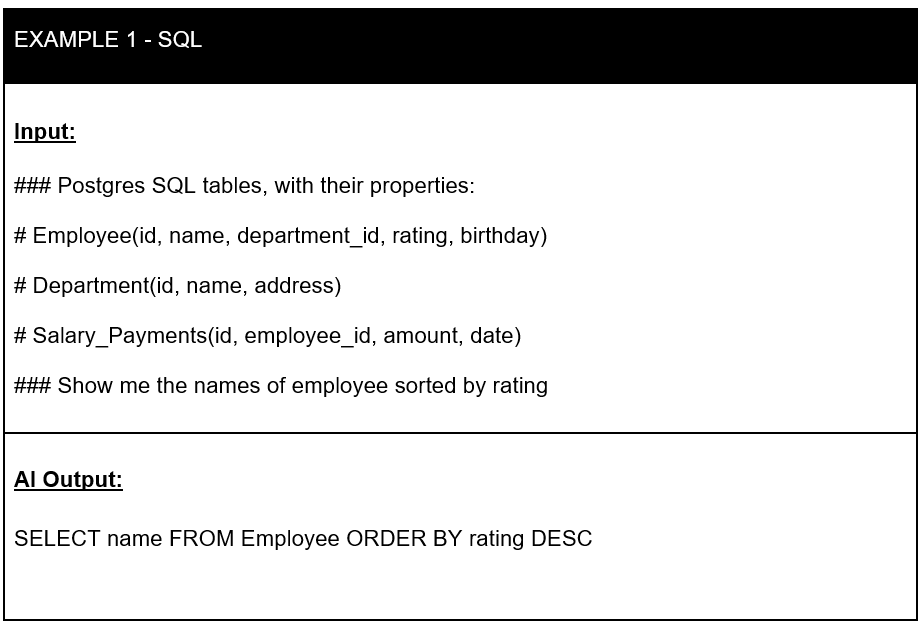
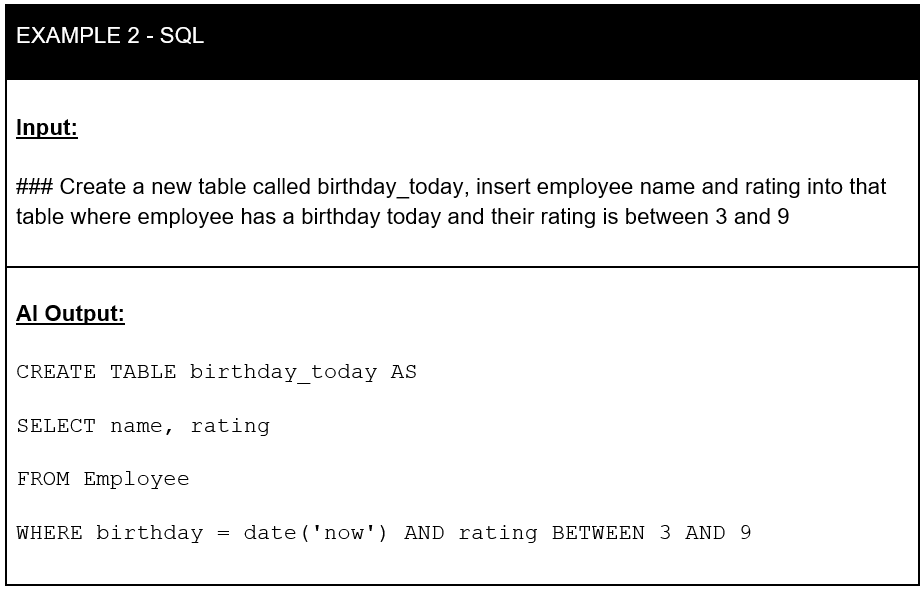
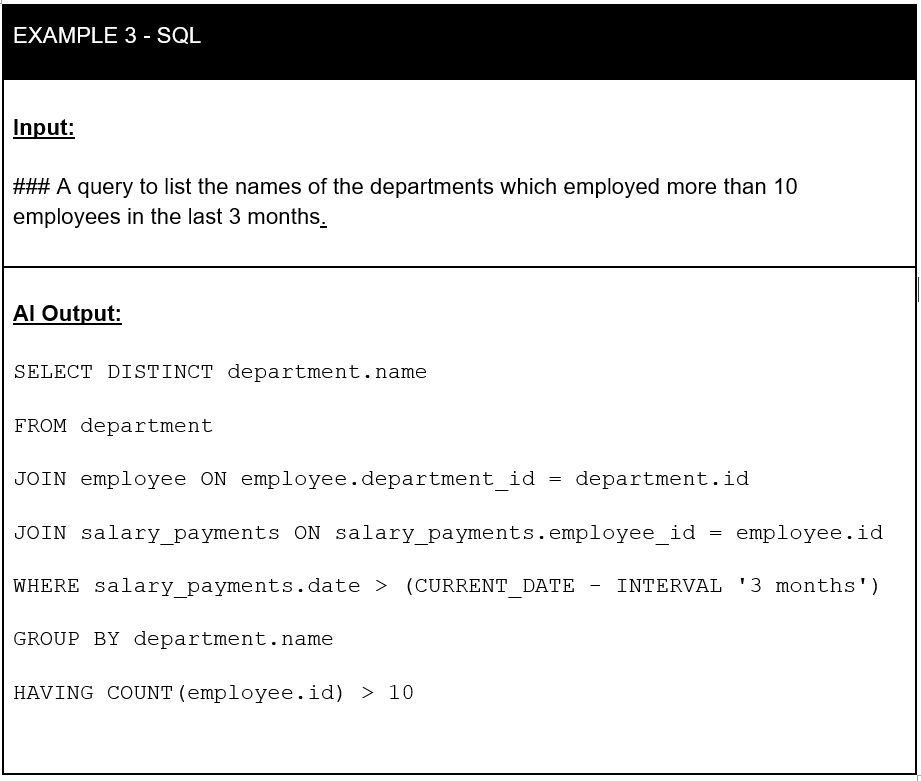
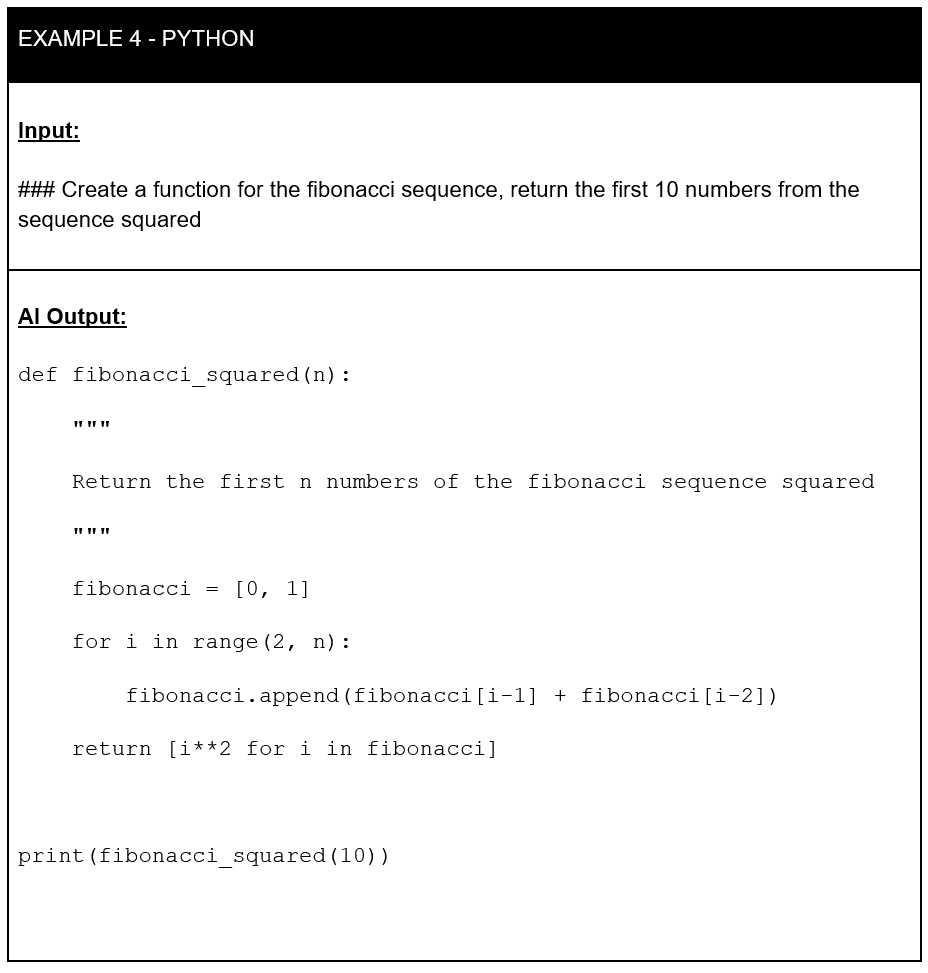
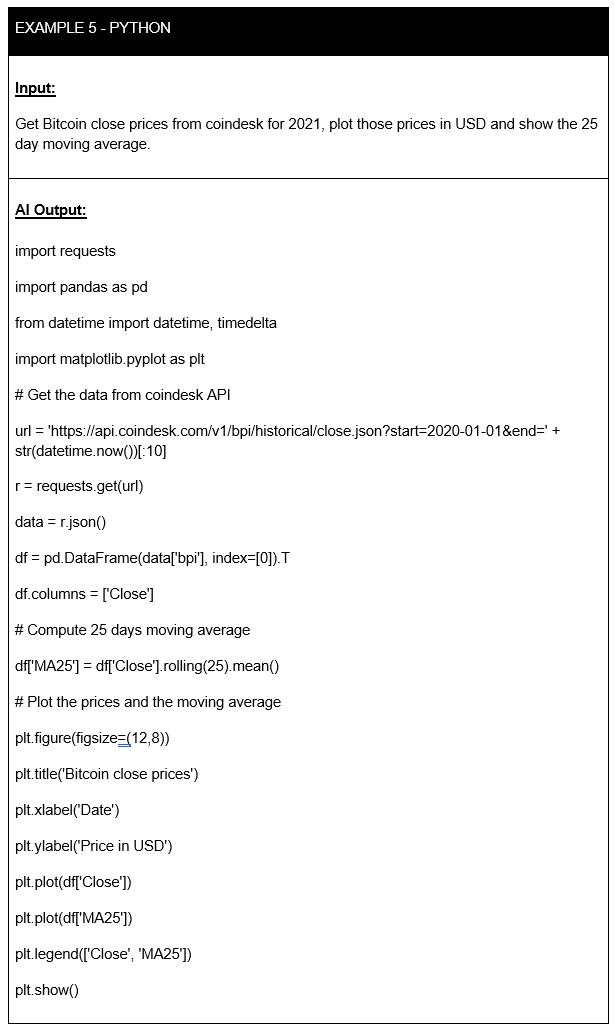

Initial thoughts
It is tough not to be amazed by OpenAI Codex. Just writing what you want and possessing the code staying made in seconds is the stuff of desires for merchandise managers. The Python instance illustrates that Codex realized how to call the CoinDesk API to get the selling price of bitcoin, though it did not capture the intent particularly rightx, as it started the plot from the starting of 2020 and not 2021. These little glitches did come about with additional challenging illustrations, but in quite a few of them it only took a handful of minor edits to take care of.
It was also most likely no surprise that SQL produced the very best illustrations specified how near the syntax is to English normal language. In reality, as I was experimenting, it turned obvious how beneficial the technological innovation could be from an academic place of check out for an individual who is learning to code from scratch. Rather of applying Google, the scholar can talk to the AI to support and, additional most likely than not, it will return one thing beneficial that will shift their contemplating forward.
It is only appropriate for me to increase that these illustrations over were taken after shelling out some time finding out how greatest to frame the input prompt. In the similar way that if you specific your business specifications badly to your human engineer you are likely to stop up with a poor product, a vague prompt to Codex will final result in non-executable output or one particular that doesn’t match your intentions.
There are a couple of attention-grabbing details to observe about Codex, which aid give route to its wider software in organization. To begin with, it is truly worth stressing that it is educated by present code. This can end result in it quoting back again verbatim with no attribution to the unique developer. Even though really uncommon, the reality it can materialize could generate a headache in hoping to understand the legal ramification of how this code could then be made use of.
Secondly, the design itself is non-deterministic. Although the stage of creativeness can be controlled via uncovered parameters, it is difficult to ensure reproducibility of the output from the design supplied the very same input. Whilst this could look problematic, specifically for the production of code, I seen that in some instances rising the creative imagination of the model resulted in it making the wanted outcomes from badly outlined inputs which was outstanding.
What does this signify for the potential of software program progress?
While the examples previously mentioned show that Codex can produce executable code to match the users’ intent, I do not see it changing builders whenever shortly. Deploying AI generated code to creation company techniques without at the very least a code assessment is just far too dangerous for the time currently being.
The additional pertinent question for nowadays is: Can Codex support software program engineers in producing them extra successful? As anyone who will work on the organization facet of program advancement, I locate it difficult to make a definitive contact on this. From a rapid straw poll of engineers inside my community, the takeaway was that AI absolutely has opportunity to strengthen developer efficiency if utilized appropriately.
Many organization codebases are huge and challenging in character and it would be challenging to see how Codex could give significant top quality and safe and sound recommendations to developers who perform on them when it has been educated on unvetted public repositories these kinds of as Github. On the other hand, if OpenAI permitted Codex to coach on non-public codebases, something it does on GPT-3 by a procedure identified as good-tuning, this could be a recreation changer. Engineering groups would have certainty as to the high quality of education info and it would make the product highly pertinent to the firm’s current applications. This could cut down the time it takes to get a new engineer to get productive when understanding a new codebase.
Last ideas
Codex was only unveiled a number of weeks back in personal beta and however less than energetic enhancement. Still, I am genuinely impressed as it gives a actual glimpse of how computer software might be created in the quite in close proximity to upcoming. From minimizing the barrier to entry for novice programmers, making skilled kinds additional productive and accelerating the reduced-code motion that is now capturing the imagination of numerous business enterprise executives. The economic benefit of AI in the software package growth industries are not able to be underestimated and warrants ongoing study.
Authors’ disclaimer: All views expressed are my own.
♣♣♣
Notes:
- The post represents the views of the creator, not the position of LSE Organization Evaluation or the London Faculty of Economics.
- Featured image by Markus Spiske on Unsplash
- When you go away a comment, you are agreeing to our Comment Coverage.







